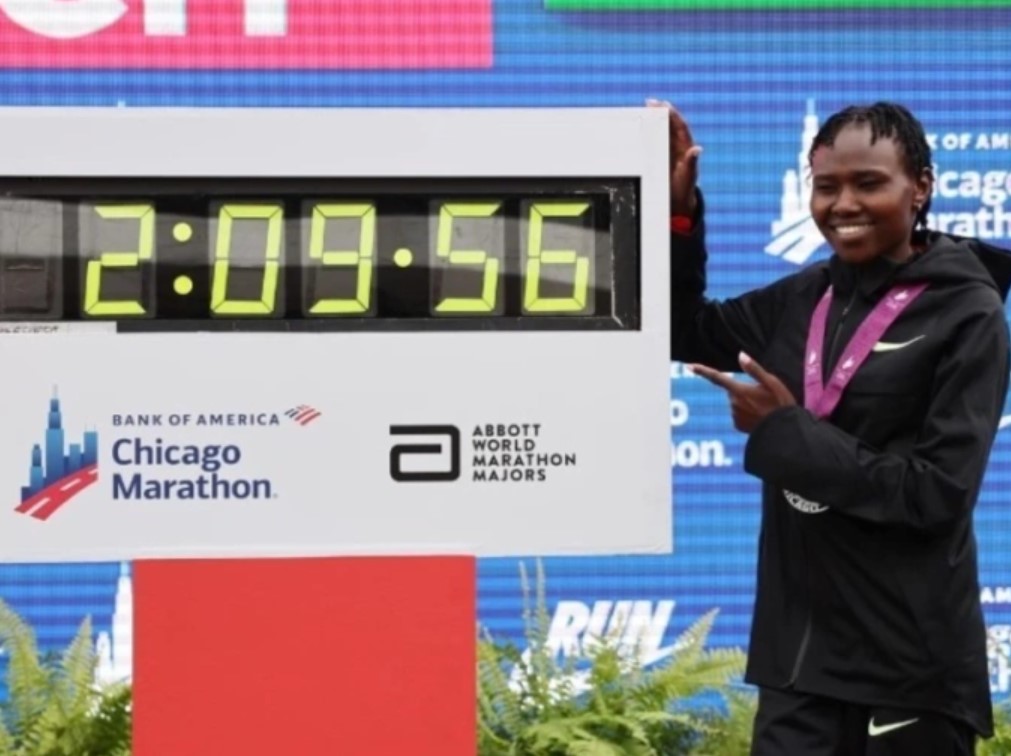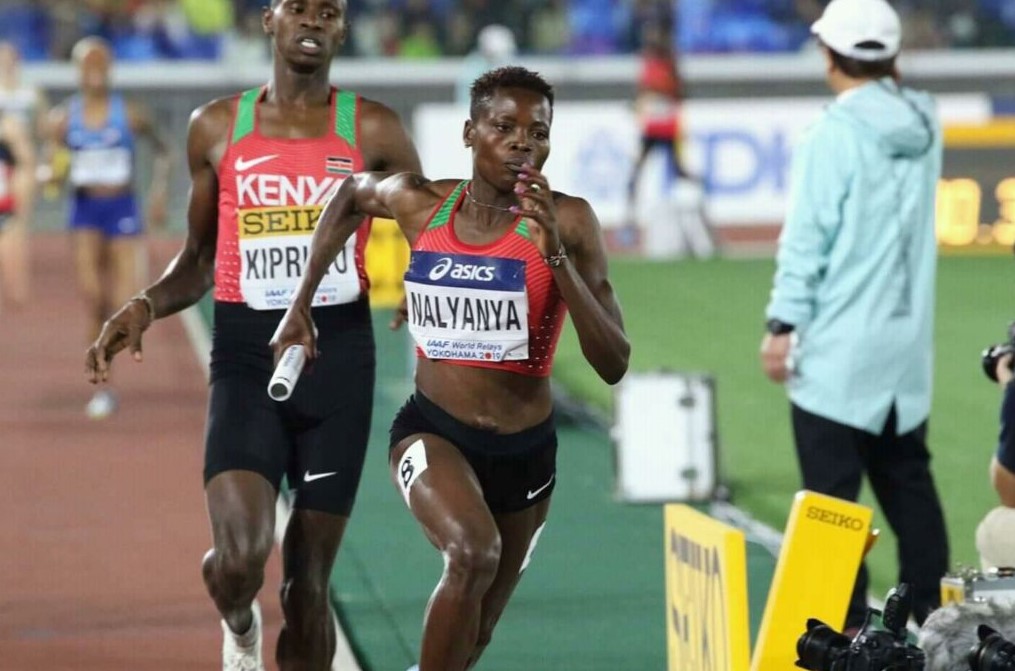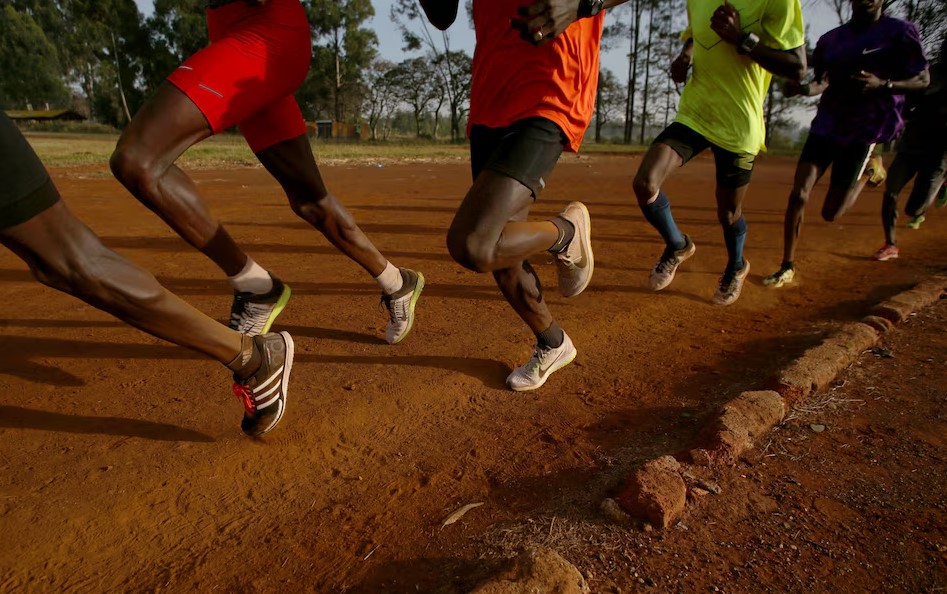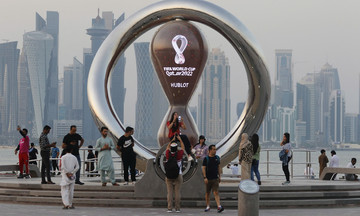 |
Ruth Chepngetich set the women's marathon world record of 2:09:57 at the 2024 Chicago Marathon. Photo: *Guardian* |
For decades, Kenya has dominated middle- and long-distance running. However, recent doping scandals have tarnished the nation's reputation.
Between 2024 and 2025, over 100 Kenyan athletes received sanctions for doping. In 2/2025, the World Athletics investigated 34 athletes for suspected age falsification. In addition, several cases of gender-based violence involving Kenyan athletes have emerged in recent years.
The most recent case involves Ruth Chepngetich. On 17/7, she received a provisional suspension after testing positive for hydrochlorothiazide (HTCZ), a banned diuretic often used to mask performance-enhancing drugs (PEDs).
Chepngetich's sample was taken on 14/3, not from her record-breaking 2:09:57 performance at the Chicago Marathon in 10/2024. Therefore, she is likely to retain the record regardless of the doping investigation's outcome.
Chepngetich's potential two-year ban, just six months after becoming the world's fastest female marathoner, came as a shock.
However, doping is not the root cause. Social and economic pressures are driving many athletes, including amateurs, to use banned substances in hopes of transforming their lives. According to *Mundo Deportivo*, talented Kenyan athletes carry a heavier burden than breaking world records: providing for their families.
They are caught in a ruthless business, forced to run as fast as possible to survive. These runners face brands and agents thousands of kilometers away, and a corrupt government, each focused on personal gain.
According to Brett Clothier, head of the Athletics Integrity Unit (AIU), doping in Kenya is not state-sponsored but "opportunistic, widespread due to poverty and the desire to escape it."
 |
Eglay Nalyanya represented Kenya at the 2019 World Relays Championships in Yokohama, Japan. Photo: *W/C* |
A joint report by the World Anti-Doping Agency (WADA) and the AIU revealed the existence of "illegal medical facilities" providing falsified documents to conceal doping. Athletes like Betty Lempus and Eglay Nalyanya used forged medical documents and received multi-year bans. This reflects weak oversight of the medical personnel surrounding athletes.
Betty Lempus tested positive for triamcinolone acetonide, a glucocorticoid prohibited in competition when administered by injection or orally, at the Harmonie Mutuelle Half Marathon (Paris) in 9/2021. Consequently, her record-breaking time of 1:05:46 at the event was voided, and she received a five-year ban.
Eglay Nalyanya's case is more severe. She was found to have violated three anti-doping rules: presence of the prohibited substance 19‑Norandrosterone (a Nandrolone metabolite), use of Nandrolone or a precursor, and tampering with the results management process. As a result, Nalyanya received an eight-year ban.
Not only athletes but also sports officials face accusations. In 2015, three senior Kenyan Athletics Federation officials were suspended for allegedly embezzling sponsorship money from Nike and involvement in doping-related bribery. Athletes subsequently protested outside the federation's headquarters, demanding transparency and justice.
 |
Athletes train early in the morning at the sports ground of Eldoret University in western Kenya, 21/3/2016. Photo: *Reuters* |
This issue was highlighted by Raphael Roux, the Athletics Integrity Unit's (AIU) special envoy in Nairobi, in an interview with *Atletieknieuws* last October.
"We pay high salaries to doping control officers, hoping they'll be less tempted to accept bribes," Roux said. "But the fact is, there's so much money in running, meaning many people want a share. A Kenyan athlete winning $10,000 at a US marathon can support their family for 10 years. That's pure profit without any investment in the sport. There are athletes who only keep 5% of their prize money. The rest goes into someone else's pockets. This is practically slavery."
Faith Kipyegon, hailed as the queen of middle-distance running, has pledged to work with the new generation to clean up Kenyan athletics. She has called for collaboration between athletes, coaches, and authorities.
Meanwhile, veteran coach Colm O’Connell, who has trained athletes in Kenya for over 40 years, warned that traditional sporting values are being replaced by cheats, violence, and pragmatism in elite athlete development.
Since late 2022, the Kenyan government has committed $5 million annually for five years to expand its doping testing program. The number of athletes on the testing pool has increased from fewer than 40 in 2022 to over 300 currently. Out-of-competition testing has increased sevenfold in just one year. The Kenyan Ministry of Sport calls this a "relentless fight against doping."
"Corruption, poverty, and physical advantage turn many athletes into tools to feed their families, regardless of ethics or regulations," *Mundo Deportivo* commented. "Brands, brokers, and the government profit from athletes' achievements, while the athletes themselves lose their voice and are exploited in the name of 'integrity' in a sport that is being tarnished."
Hong Duy
Compiled












